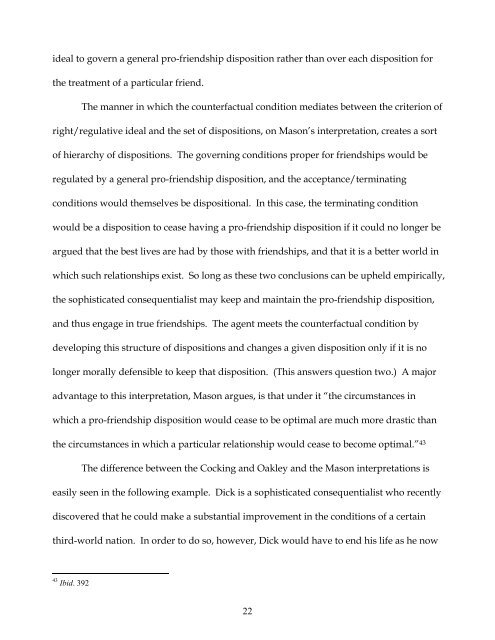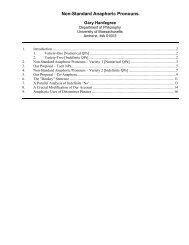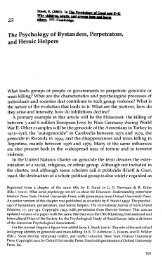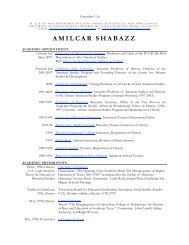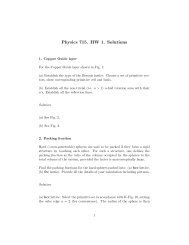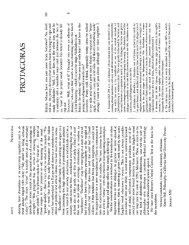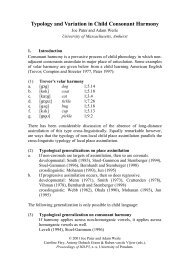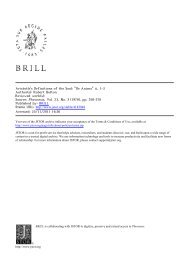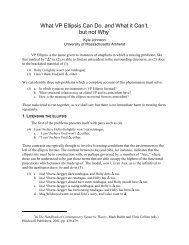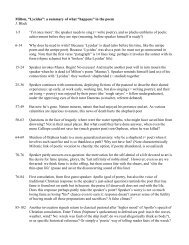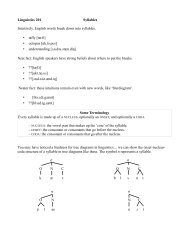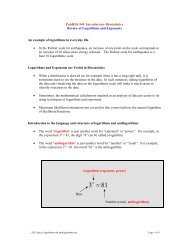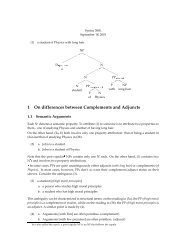1 Confessions of a Moral Schizophrenic* By Jayme Johnson I ...
1 Confessions of a Moral Schizophrenic* By Jayme Johnson I ...
1 Confessions of a Moral Schizophrenic* By Jayme Johnson I ...
Create successful ePaper yourself
Turn your PDF publications into a flip-book with our unique Google optimized e-Paper software.
ideal to govern a general pro-friendship disposition rather than over each disposition for<br />
the treatment <strong>of</strong> a particular friend.<br />
The manner in which the counterfactual condition mediates between the criterion <strong>of</strong><br />
right/regulative ideal and the set <strong>of</strong> dispositions, on Mason’s interpretation, creates a sort<br />
<strong>of</strong> hierarchy <strong>of</strong> dispositions. The governing conditions proper for friendships would be<br />
regulated by a general pro-friendship disposition, and the acceptance/terminating<br />
conditions would themselves be dispositional. In this case, the terminating condition<br />
would be a disposition to cease having a pro-friendship disposition if it could no longer be<br />
argued that the best lives are had by those with friendships, and that it is a better world in<br />
which such relationships exist. So long as these two conclusions can be upheld empirically,<br />
the sophisticated consequentialist may keep and maintain the pro-friendship disposition,<br />
and thus engage in true friendships. The agent meets the counterfactual condition by<br />
developing this structure <strong>of</strong> dispositions and changes a given disposition only if it is no<br />
longer morally defensible to keep that disposition. (This answers question two.) A major<br />
advantage to this interpretation, Mason argues, is that under it “the circumstances in<br />
which a pro-friendship disposition would cease to be optimal are much more drastic than<br />
the circumstances in which a particular relationship would cease to become optimal.” 43<br />
The difference between the Cocking and Oakley and the Mason interpretations is<br />
easily seen in the following example. Dick is a sophisticated consequentialist who recently<br />
discovered that he could make a substantial improvement in the conditions <strong>of</strong> a certain<br />
third-world nation. In order to do so, however, Dick would have to end his life as he now<br />
43 Ibid. 392<br />
22


